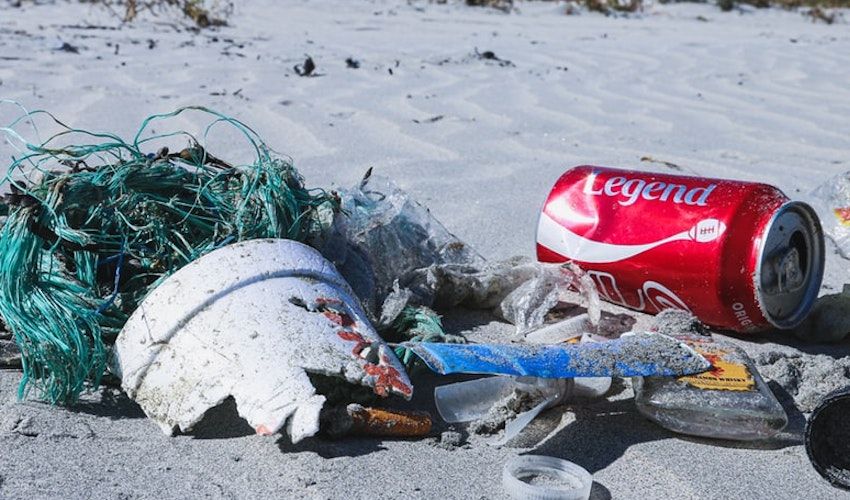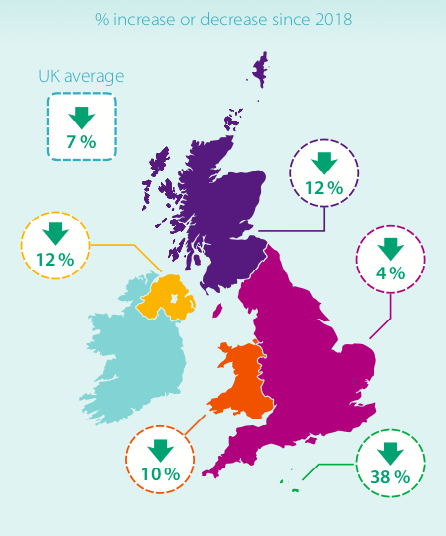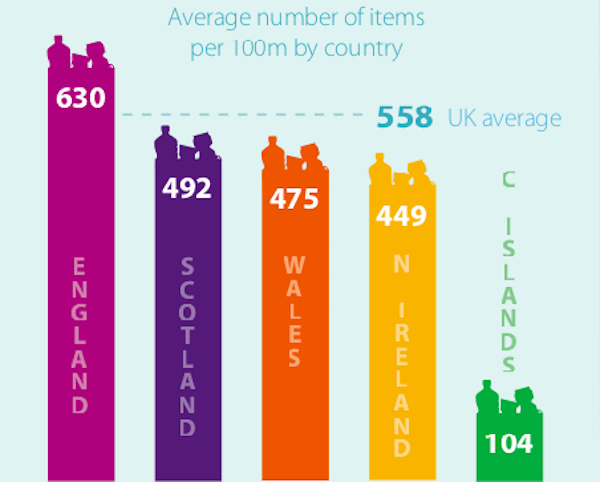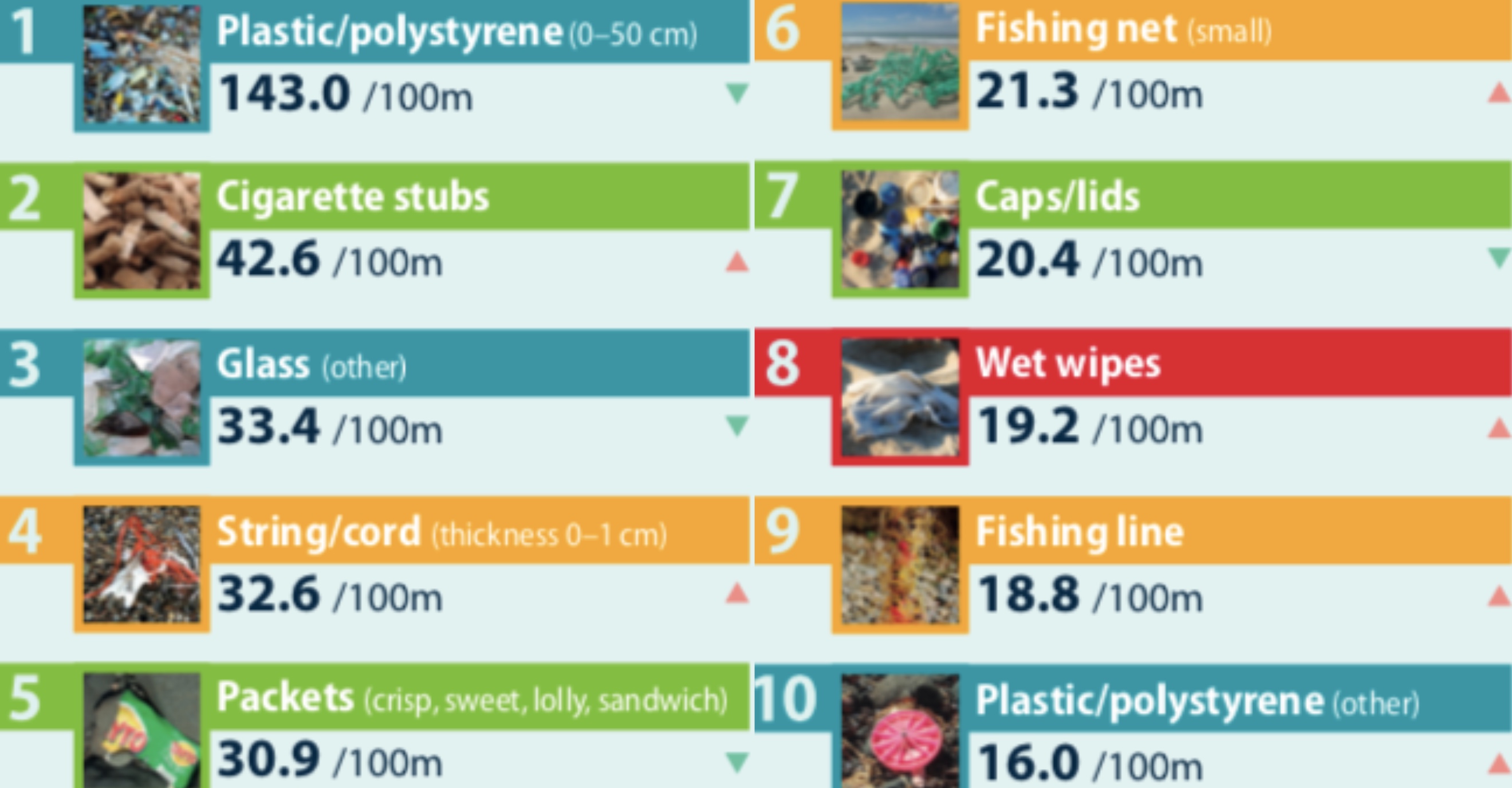

An average of 104 items of rubbish are found on every 100-metre stretch of beach in the Channel Islands, new research has found.
The findings, which put Guernsey and Jersey far below the UK average of 558, come from the Marine Conservation Society.
For the past 26 years, the organisation has run a Great British Beach Clean. This year, 10 beaches in the Channel Islands were cleaned on 22 and 23 September, with 173 volunteers taking part.

Pictured: The amount of litter found decreased, but the total weight increased.
The total amount of litter collected was just over a third less (38%) than in 2018. Overall, in the UK, the amount found decreased by 7% but the weight increased, with almost 11 tonnes removed across 437 beaches.
Every year, in addition to collecting rubbish off the sand, volunteers take on the role of citizen scientists and record the litter they find over 100 metres.
The data is then submitted as the UK's entry to the International Coastal Clean-up, alongside those of beach cleans globally, contributing to a worldwide report on litter levels and used to help turn the tide on ocean pollution.
Such data has helped campaign for the introduction of the 5p plastic bag charge, which has seen numbers of bags on beaches drastically decline.

Pictured: On average, volunteers found 558 items per 100m of beach.
On average, volunteers found 104 items per 100m of beach in the Channel Islands, which is five time less than the UK average of 558. It is also less than the 2018 average of 168.
Over the years, volunteers have seen the type of litter they encounter change.
In 2019, plastic and polystyrene pieces broken off larger items were still the most prolific type of beach litter, with 143 found in every 100m. Cigarette stubs and glass were still in the top three, with 42.6 and 33.4 items each, although they swapped spots.
Other frequent items found included string and cords, crisps, sweets and sandwiches packets, fishing nets and lines, and caps.
This year, an average of 19.2 wet wipes were found in each 100m of beach, while they were not in the top 10 in 2018.

Pictured: The items most frequently found on UK beaches.
Nearly a third of the litter (30.4%) had not been disposed of properly by members of the public, while 14.7 came from the fishing industry and 5.9% from sewage related debris.
Over the last 25 years, volunteers have also seen a 36% increase in drinks containers of all forms. In 1994, when records began, volunteers would find an average of 28 containers per 100m of beach in the UK; this year, they found a total of 16,000, making an average of 38.
Whether plastic, glass or cans, all containers can potentially harm wildlife and beach visitors, Lizzie Prior, Beachwater Officer for the MCS said.
Pictured: The Great British Beach Clean took place in September 2019.
She said the charity would like to see governments across the UK commit to “all-inclusive Deposit Return Schemes", which would reduce the ever-increasing volume of containers ending up on beaches.
“Per 100m of UK beach, an average of 558 litter items were found in 2019,” Ms Prior said. “Every piece of litter you clear from the beach and record means we can campaign to push for more urgent policy change to really stem the tide of litter and we’re sure that the year ahead will be no exception.”
Comments
Comments on this story express the views of the commentator only, not Bailiwick Publishing. We are unable to guarantee the accuracy of any of those comments.